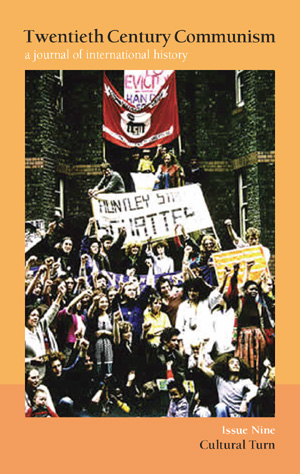
Culture, Class, and Communism: The Politics of Rock in the West German 1968
Twentieth Century Communism - Print ISSN 1758-6437 - Online ISSN 2978-1329
Volume 2015 Number 9
Culture, Class, and Communism: The Politics of Rock in the West German 1968
Timothy Scott Brown
Abstract
Rock and communism were uneasy bedfellows in 1968. This was true in every country in which they came into contact, but nowhere more so than in West Germany, where the student movement and counterculture had a particularly strong Marxist flavour, and where the proximity of the Cold War frontier forced young nonconformists to grapple more forcefully, than was typically the case elsewhere, with competing conceptions of the nature and proper goals of revolutionary struggle.
As a still-fresh cultural innovation widely imbued with subversive, utopian potential, rock music was a key site of the political in 1968. Not only did it become the centrepiece of a longstanding debate about the relationship of art and politics – a debate stretching back to the Weimar Republic in Germany and earlier – but it occupied a conspicuous position in contests around issues of subcultural authenticity, the dangers of capitalist recuperation, and the validity of, respectively, communist and anarchist approaches to the revolution. Through these various debates, rock music in the West German 1968 became intimately connected with the fundamental questions of the revolution: what revolution, for and by whom, and how?
To cite this article
Timothy Scott Brown (2015) Culture, Class, and Communism: The Politics of Rock in the West German 1968, Twentieth Century Communism, 2015(9)
